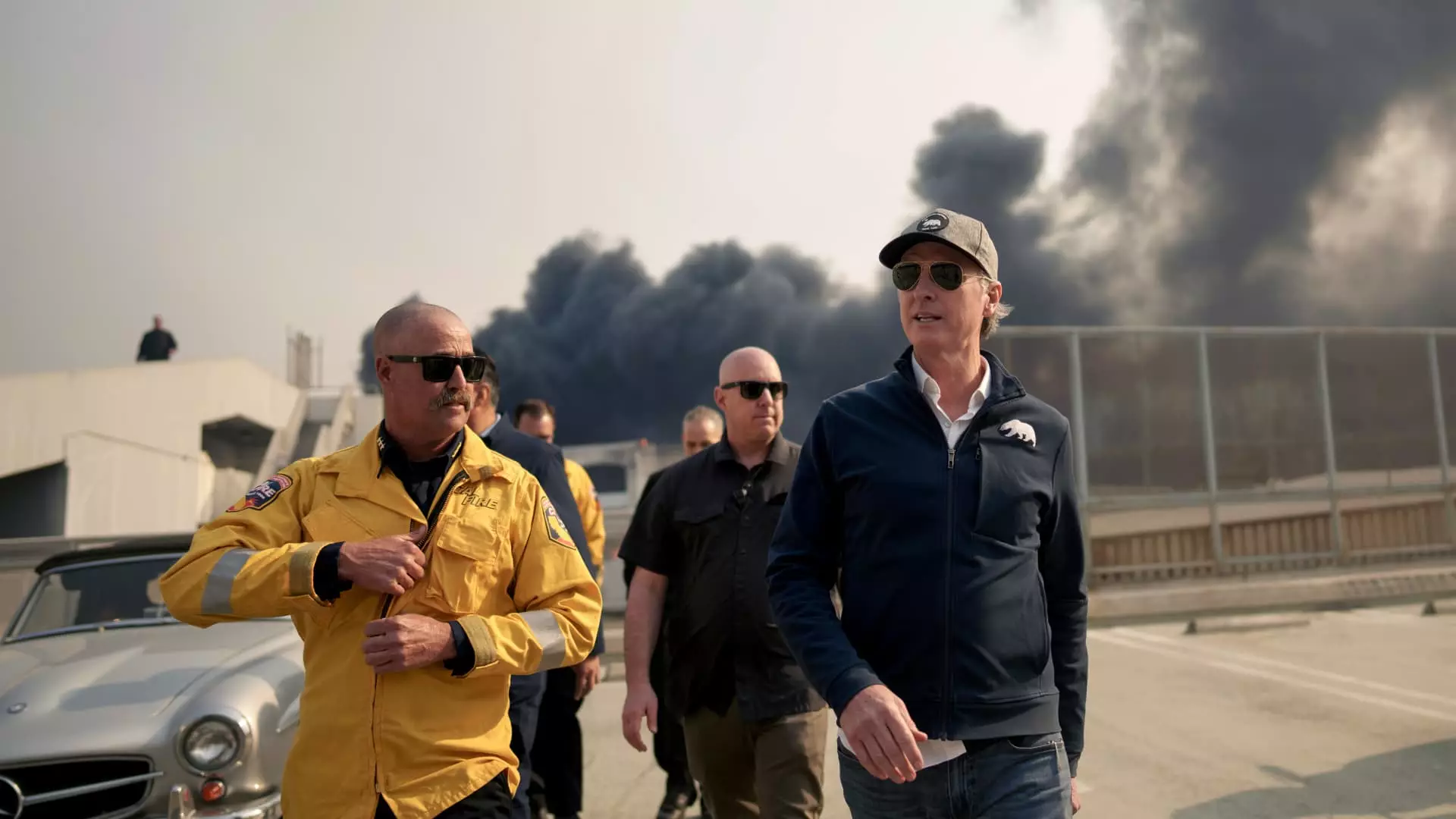The raging wildfires in California have once again attracted national attention, bringing to light not only the chaos of natural disasters but also the often-contentious interplay between state and federal leadership. Recently, California Governor Gavin Newsom made headlines by vocally criticizing President-elect Donald Trump for his posts regarding the state’s disaster response. This article will break down the dynamics of their exchange, assessing the implications of political rhetoric during emergencies and the responsibilities of elected officials in addressing both the disasters themselves and the narratives that surround them.
In the interview with NBC News’ “Meet the Press,” Newsom characterized Trump’s responses as emblematic of a broader issue with misinformation, asserting that such narratives do little to aid those affected by the disasters. Trump’s social media proclamations included unfounded accusations directed at Newsom, claiming that a water measure which could have alleviated the situation had been blocked by the governor. He blamed Newsom for prioritizing the protection of a species—a delta smelt—over the safety and well-being of Californians facing devastating fires. This rhetoric exemplifies how political leaders can exploit emergencies for their own ends, often bypassing facts for sensational claims that can mislead the public.
Newsom’s retort highlighted the absurdity of linking the devastation wrought by wildfires to water policy concerning a fish species. His pointed criticism serves not only as a defense of himself but also as an indictment of how misinformation can spread during crises, threatening the integrity of discourse surrounding public policy and disaster management. This interplay reveals the desperate need for clarity and factual communication in times of emergency.
Beyond the immediate devastation that wildfires wreak on communities, there are significant financial implications for states reliant on federal aid for recovery. Newsom’s apprehensions about Trump withholding disaster funding due to political grievances point to a troubling trend in modern governance. The governor’s concerns aren’t unfounded; historical patterns indicate that aid distribution can become politicized, as minorities in leadership positions risk losing essential federal support.
By evoking past examples where Trump allegedly withheld aid from states whose leaders opposed him politically—including Michigan, Utah, and Puerto Rico—Newsom underscores the precarious nature of federal-state relations. Such political maneuvering during humanitarian crises can further exacerbate the suffering of affected communities and lead to longer recovery periods, as essential funds may be delayed or diverted.
Seeking dialogue instead of conflict, Newsom extended an invitation to Trump, urging him to experience the disaster firsthand. This gesture suggests an understanding that genuine engagement between leaders can foster collaboration and facilitate necessary aid efforts. However, the non-response from Trump raises questions about the extent to which political leaders are willing to engage with dire situations personally rather than resorting to social media barbs.
Such disconnect can alienate citizens who look to their leaders for unambiguous support during crises. The differentiation between private communications and public rhetoric remains vital in maintaining trust between officials and those they serve. As governors like Newsom confront the harsh realities wrought by natural disasters, the need for cohesive leadership—the ability to unify rather than divide—becomes even more paramount.
The California wildfires serve as a critical juncture for assessing how political discourse profoundly impacts disaster management and recovery efforts. The exchange between Newsom and Trump not only spotlights the urgent need for factual communication in times of crisis but also illustrates the immediate repercussions of politicized discourse. Instead of casting blame and fostering division, leaders should strive toward honest engagement, understanding the humanitarian implications of their words and actions.
As California grapples with its ongoing crises, the emphasis on collective action become essential. Finding common ground amid the ashes may pave the way for better policies and a more supportive federal-state relationship in future disasters—ultimately serving the survivors who deserve decisive and compassionate leadership.

Leave a Reply